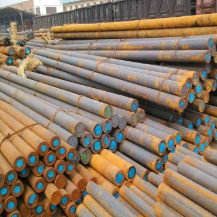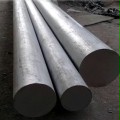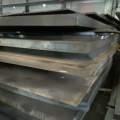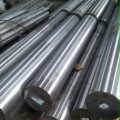Detailed Introduction
Model : 1.2550/6CrW2Si/60WCrV8/6XB2C
Application : alloy tooling steel
Content : Equivalent Steel with exact or nearest equivalents
|
Grade |
C |
Si |
Mn |
P |
S |
Cr |
V |
W |
|
1.2550 |
0.55-0.65 |
0.70-1.00 |
0.15-0.45 |
≤0.03 |
≤0.03 |
0.90-1.20 |
0.10-0.20 |
1.70-2.20 |
|
Grade |
C |
Si |
Mn |
P |
S |
Cr |
W |
|
|
6CrW2Si |
0.55-0.65 |
0.50-0.80 |
≤0.04 |
≤0.03 |
≤0.03 |
1.10-1.30 |
2.20-2.70 |
|
|
Grade |
C |
Si |
Mn |
P |
S |
Cr |
V |
W |
|
60WCrV8 |
0.55-0.65 |
0.70-1.00 |
0.15-0.45 |
≤0.03 |
≤0.03 |
0.90-1.20 |
0.10-0.20 |
1.70-2.20 |
Description of 1.2550steel :
1.2550 steel it is an alloy cold working tooling steel which have great application in industrial .
1.2550 round steel plate hardness: annealing, 285~229HB, indentation diameter 3.6~4.0mm; quenching, ≥57HRC.
Chrome–tungsten–silicon–vanadium steel for cold work for hardening in oil with the middle harden-ability (steel is hardened up to diameter of 60 mm during the hardening in oil), very high toughness, resistance to the dynamic stress, shocks and hits, good resistance to the wear and dimensional stability at the heat treatment.
1.2550 with great advantage for tools to cold cutting, i.e. shear blades, tools for cold cutting and punching of materials of thicker thicknesses (up to about 15 mm) and higher hardness, profile and industrial knives, scrapping scissors, circular scissors. Tools for mechanical working such as tools for punching of simple as well as difficult shapes, tools for pushing and extrusion at lower pressures, marking dies, hammers, crusher for rougher crushing. Hand tools, i.e. pneumatic and hand.
HEAT TREATMENT:
l FORGING:Heat the steel carefully to a temperature of 1000-1050°C and forge with light rapid blows. Reheat when temperature falls below 900°C if further work remains to be done. After forging, cool slowly, ideally in a furnace.
ANNEALING: Heat the component slowly and uniformly to 800-810°C. Soak thoroughly for two to three hours and cool slowly in the furnace.
STRESS RELIEVING: If the machining operations have been severe, we recommend stabilising just before the tool components are finish machined to relieve machining strains. Heat slowly to a temparature of 700°C, allow to cool in air.
HARDENING:Preheat at 650°C followed by rapid increase of temperature to 900-950°C. Quench in oil. Tempering of this grade is always recommended after hardening.
TEMPERING: Heat slowly to the required tempering temperature, soak thoroughly for two hours per 25mm section and allow to cool in air. For hot work applications, a minimum tempering temperature of 550°C should be used.
Solar Special Steel International Limited
Contact Person :Wendy
Telephone:+86 18688633122 whatsapp&wechat
Skype: .cid.8920082fecfa0b5c
Email:ss@solarsteel.cn








